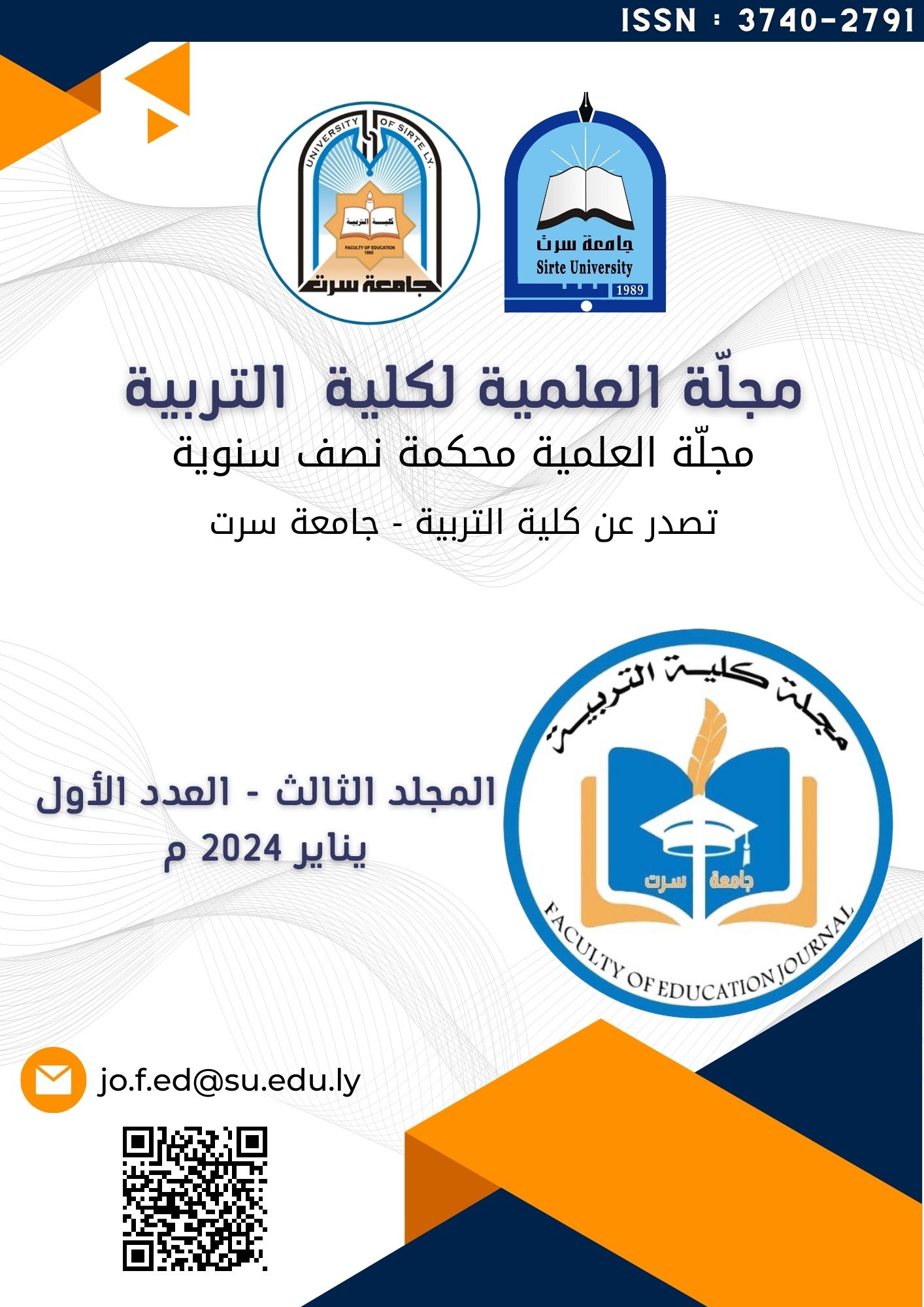Slaves between slavery and emancipation in the first Christian society
DOI:
https://doi.org/10.37375/foej.v3i1.2579Abstract
Christianity found slaves without value in the pagan society, so it tried to take care of them and sensing them with their humanity, but it did not try to abolish slavery or even prevent it. The enemies of Christianity took advantage of the sympathy of the church to the poor and the slaves. Where Celsus said sarcastically that Christians accept among them children, fools, and and persons devoid of perception, and slaves whenever they are renewed. Origen replied to him saying: We do not reject anyone, not even the slave, Christianity is for all people, we only give them attention, hoping to make them in a better situation. Christianity paid attention to slaves and gave them great importance in the early Christianity, and treated them gently, but despite the fact that the Roman state issued some laws to encourage emancipation and prevent slavery, This research aims to display the real reasons behind preventing the emancipation of believing slaves in the Christian community. The Church did not attempt to prevent or reduce slavery, and instead eased the conditions of slaves, and it made them brothers in God, and tried to justify slavery by making it a human nature and a divine punishment, and the believers must be patient until that divine punishment is lifted by real repentance.
References
أولا المصادر
أ- المصادر العربية:
- ابن قتيبة الدينوري، كتاب المعارف، (المكتبة الشاملة الحديثة)، الجزء الأول.
- أفلاطون، الجمهورية، الكتاب الخامس.
- التلمود المشناه: بساحيم الفصح؛ وسوكاه المظلة. - القديس أوغسطينوس، مدينة الله، ترجمة الخور أسقف يوحنا الحلو، (بيروت، دار الشروق، 2006)، الجزء الأول، الكتاب الرابع.
- الكتاب المقدس بشقيه العهد القديم والعهد الجديد.
ب- المصادر الأجنبية:
Apuleus, The Metamorphoses.-
-Aristotle, Metaphysics.
Augustin, De Civitate Dei.-
Constitutions of the Holy Apostle. -
Dio Chrysostom, Discourses. -
Flavius Josephus, The Jewish War, II. -
Gaius, Institvtionvm, 1. -
-Gregory of Nyssa, Ecclesiastes.
Gregory The Great, VI. -
Ignatius, Epistle to Polycarp. -
Livius, Ab Urbe Condita. -
Origen, Contra Celsum.-
______ Homilies on Genesis and Exodus.
Philo, De specialibus legibus.
_____ De Vita Contemplativa.
_____ Every Good Man is Free, XII.
______ The Special Laws, II.
Pliny, The Elder, Natural History.
Sanhedrin .
Seneca, Ad Lucilum Epistulae Morales.
_____ Epistula.
______ De Beneficiis.
Strabo, Geogrphy.
Suetonius, Life of Claudius.
Tacitus, Annals.
Theophilus of Antioch, Theophilus to Autolycus.
Varro, De Re Rustica, I.,
______ On The Latin Language 7.
ثانيا المراجع
أ- المراجع العربية:
-أبيش، أحمد، (2006) التلمود كتاب اليهود المقدس، دمشق: دار قتيبة.
-الياسري، حميد ياسر، (2019) "جدلية العلاقة بين الفقر والعبودية، وبعض مؤشراتها الحديثة دراسة في الجغرافية الحديثة"، مجلة كلية الآداب والتربية، جامعة واسط، العدد .37
-أمين، أحمد، (2015) العمارة المسحية المبكرة، الإسكندرية: مركز الدراسات القبطية. أرنولد، إبرهام، (2000) -المسيحيون الأوائل، القاهرة. ديورانت، قصة الحضارة، قيصر والمسيح أو الحضارة الرومانية، ترجمة محمد بدران، المجلد الثالث، الجزء الثالث. -حمدان، عبد المجيد، (2012) " العبيد عند الرومان خلال القرنين الثاني والأول قبل الميلاد "، مجلة دراسات تاريخية، العدد 117-118. خديجة، زموري، (2017- 2018) القديس أغسطين بين السلطة الرومانية والمجتمع المحلي، الجزائر: جامعة قالمة.
ب- المراجع الأجنبية
-Bardini, T., (2000) Bootstrapping: Douglas Engelbart, coevolution, and the origins of personal computing, US, Standford University Press. Berger,A.,(1991), Encyclopedic Dictionary of Roman Law, Transactions of the American Philosophical Society, The American Philosophical Society, volume 43.
-Brown, C., (ed.), Dictionary of New Testament Theology, The Zondervan Corporation, Grand Rapids, Michigan, U.S.A. & The Paternoster Press, Ltd. Exeter, Devon, U.K, Volume 2.
- De Wet, Chris L., (2016) "The Punishment of Slaves in Early Christianity: The view of some selected Church Fathers", Acta Theologica, Bloemfontein, volume 36.
-Garnsey, P., Ideas of Slavery from Aristotle to Augustine Cambridge University Press.
Garnsey, P., Philo Judaeus and Slave Theory, Jesus College, Cambridge. -George,M.,( 2005), The Roman Family in the Empire, Family Imagery and Family Values in Roman Italy, Oxford University Press.
-Junius P. Rodriguez,( 1997), "Slavery in Human History", The Historical Encyclopedia of World Slavery, Oxford, Denver, California , volume 1.
- Karl Kautsky, K., (1908) Foundations of Christianity, volume II.
-Kirchschlaeger, P. G.,(2016) " Slavery and Early Christianity- A reflection from a human rights perspective", Acta Theologica, (Bloemfrotein, Volume 36.
-Lesley Adkins, L., & Adkins,R.A.,( 2004), Handbook, to Life in Ancient Rome, USA. Mauss, M., (1950), "Une categore de l' esprit human: la notion de personne celle de moi" in sociologie et anthropologie, Paris, presses universitaires de france.
-Super, J. F., (2013),"Slavery and Manumission in the Pre- Constantine Church", Eleutheria 2, Liberty University, volume 2.
- Tyler M. Schwaller,(2017), The Use of Slaves in Early Christianity: Slave as Subjects of Life and Thought, Harvard University Cambridge Massachusetts , A dissertation presented to The Faculty of Harvard Divinity School.
- Veyne,P. et alii (1987), Arthur G. H., (translator), A History of Private Life: From pagan Rome to Byzantium, The Belknap Press of Harvard University Press Cambridge Massachusetts & London
- Westermann,W. L., "The slave systems of Greek and Roman antiquity".









